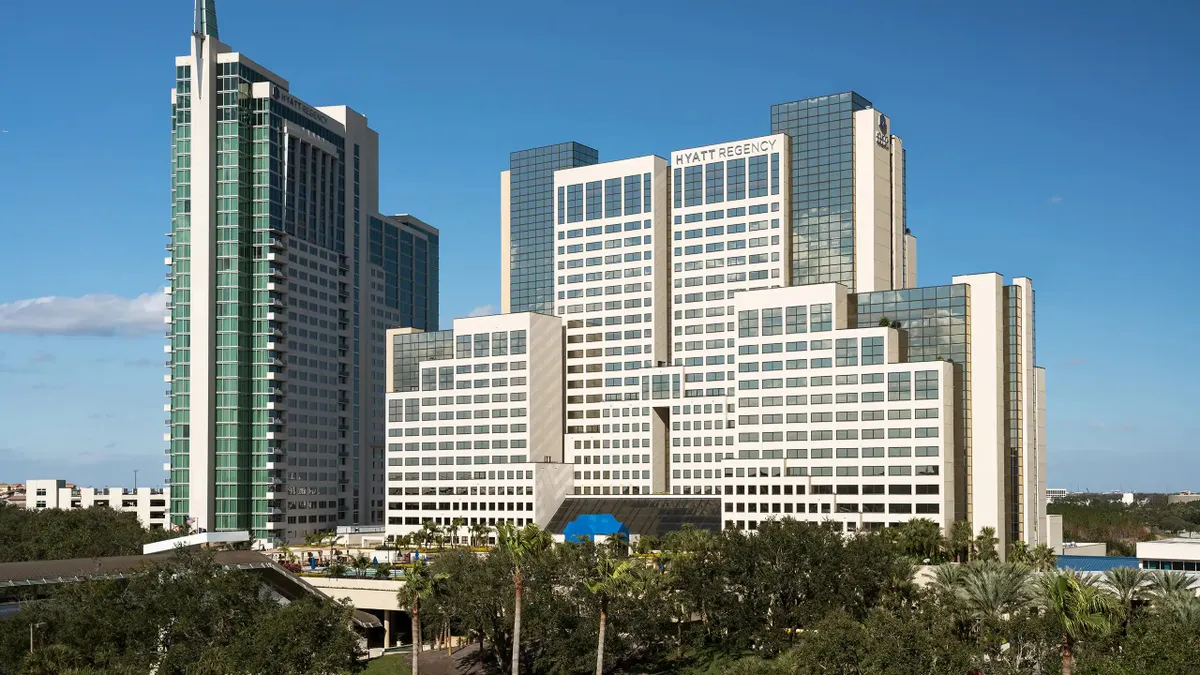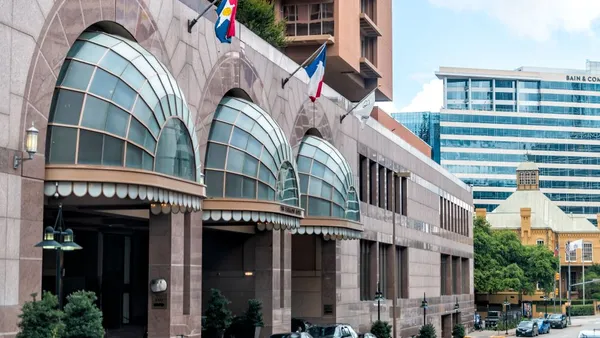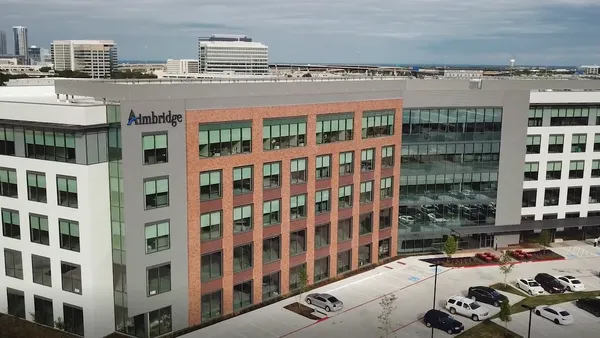Dive Brief:
- As RevPAR growth slows in the U.S., hotels that cater to budget-conscious travelers, as well as those in leisure-focused markets, were the hardest hit as of the third quarter of 2024, according to JLL’s Q3 U.S. Hotel Investment Trends report, obtained by Hotel Dive.
- While year-to-date RevPAR was 14% above 2019 levels as of Q3, growth has stagnated, rising 1% compared to 2023. JLL attributed the slowdown to declining domestic leisure travel and shrinking consumer savings.
- There were winners, however, with luxury hotels and those in urban markets seeing more year-to-date growth due to the recovery in international, corporate and group travel. And recent Federal Reserve rate cuts are also cause for “cautious optimism,” according to JLL.
Dive Insight:
When compared to 2023, economy hotels’ year-to-date RevPAR as of Q3 was down 3.4%, and midscale hotels’ RevPAR was down 1.2%, JLL found. Luxury hotels grew their RevPAR by 1.4%.
Profitability “continues to lag” due to rising labor costs, per JLL, which noted that “upcoming union negotiations in top markets will likely put further stress on some owners.” Union hotel workers in California, Massachusetts and Hawaii have scored higher wages amid this year’s nationwide hotel strikes.
Earlier this year, the American Hotel & Lodging Association projected that U.S. hotels would pay employees 4% more, as industry employment continues to lag pre-pandemic levels.
JLL projects that lagging profitability will spur some transactions in the coming months as “cash-strapped” owners deal with the high cost of debt and property improvements.
In Q3, transaction volume increased for the third consecutive quarter, fueled by large transactions. Notable deals in the quarter included Hyatt’s $1 billion sale of Hyatt Regency Orlando, Gencom’s $300 million purchase of Thompson Central Park Hotel and Host Hotels & Resorts’ $265 million 1 Hotel Central Park buy.
Year-to-date, there were 481 total transactions, or $15.4 billion in transaction volume, as of the third quarter, up nearly 30% from 2019 but down 20% from 2023.
The top three markets for transaction volume in the quarter were New York City with $1.6 billion in transactions; Orlando, Florida, with $1.2 billion; and Phoenix with $1 billion, JLL found.
The Fed’s recent rate cuts could also increase transaction volume, which, year to date, remains below historical levels, “though more clarity needs to emerge for liquidity to meaningfully increase,” according to JLL.
Speaking at the Lodging Conference last month, JLL Hotels & Hospitality Group CEO Kevin Davis said that hotel investment going forward would be “like a boulder at the top of a hill.”
“It kind of starts small and slowly, but as it starts to go down the hill, it gets bigger and it goes faster,” Davis said. “I think that describes what the transaction market will be like next year.”










